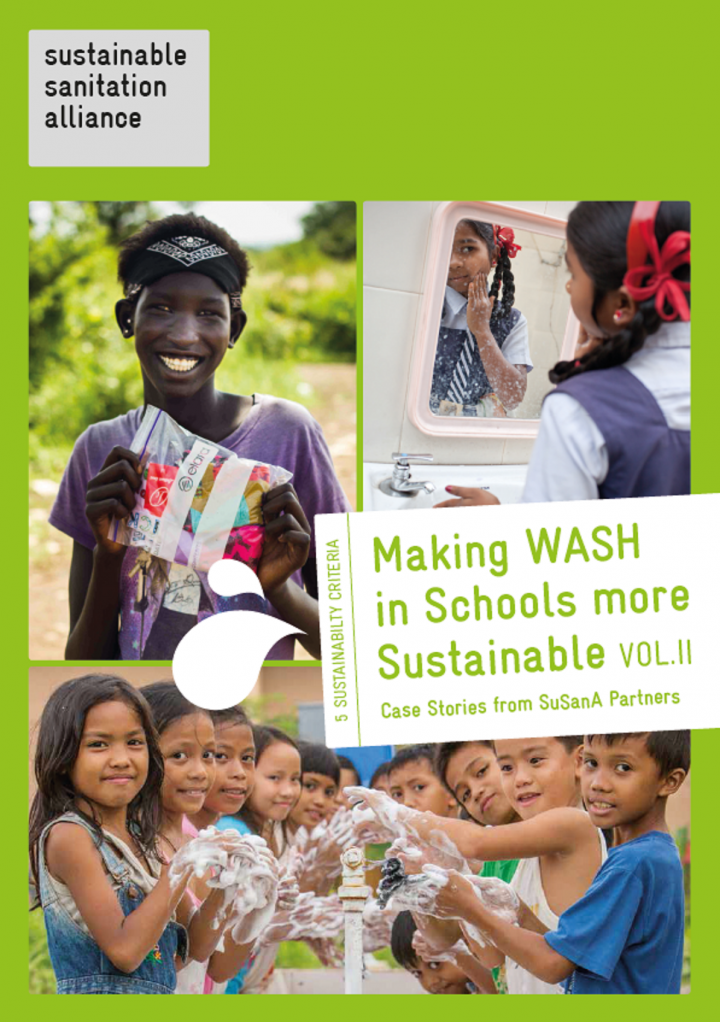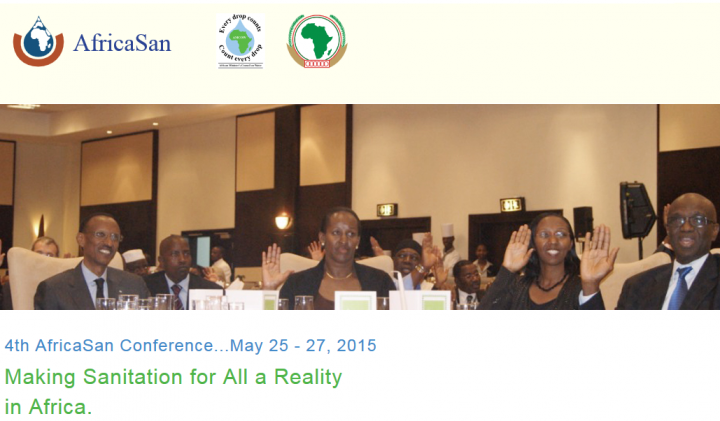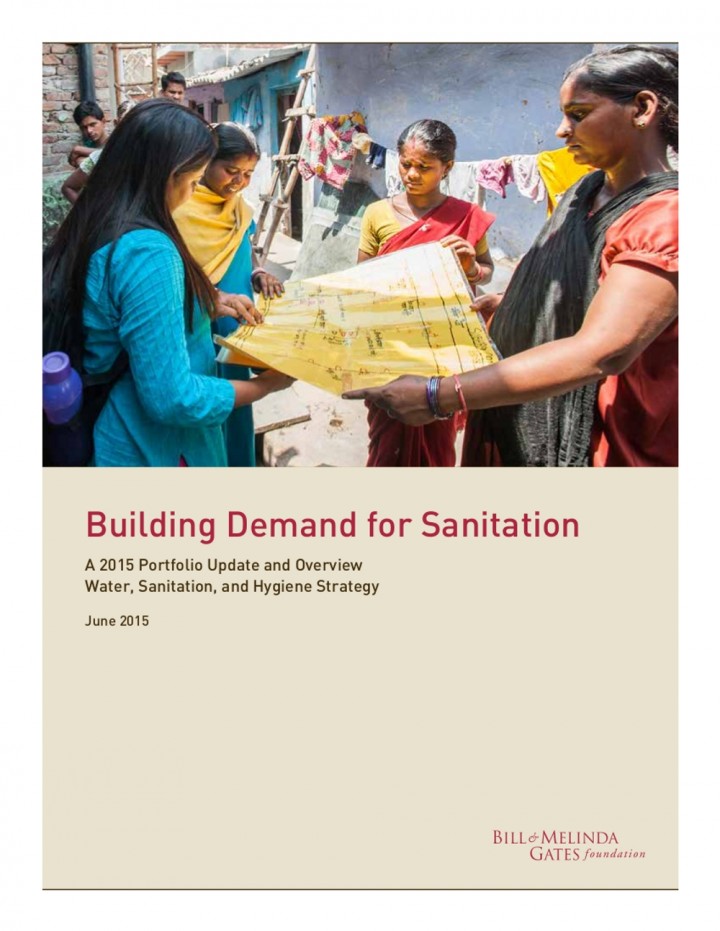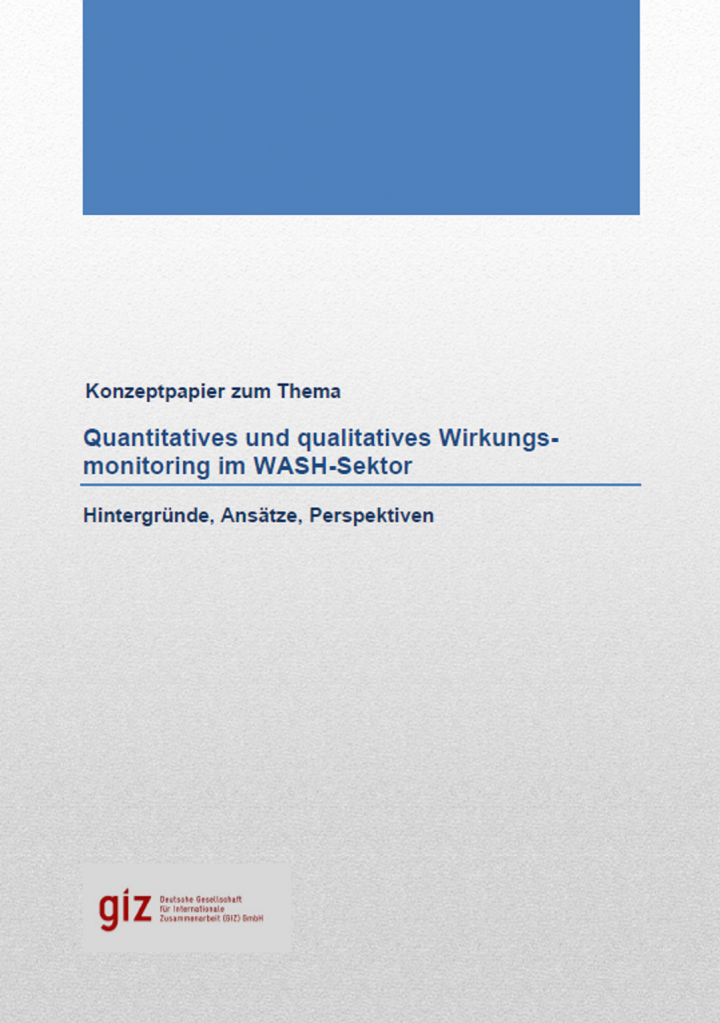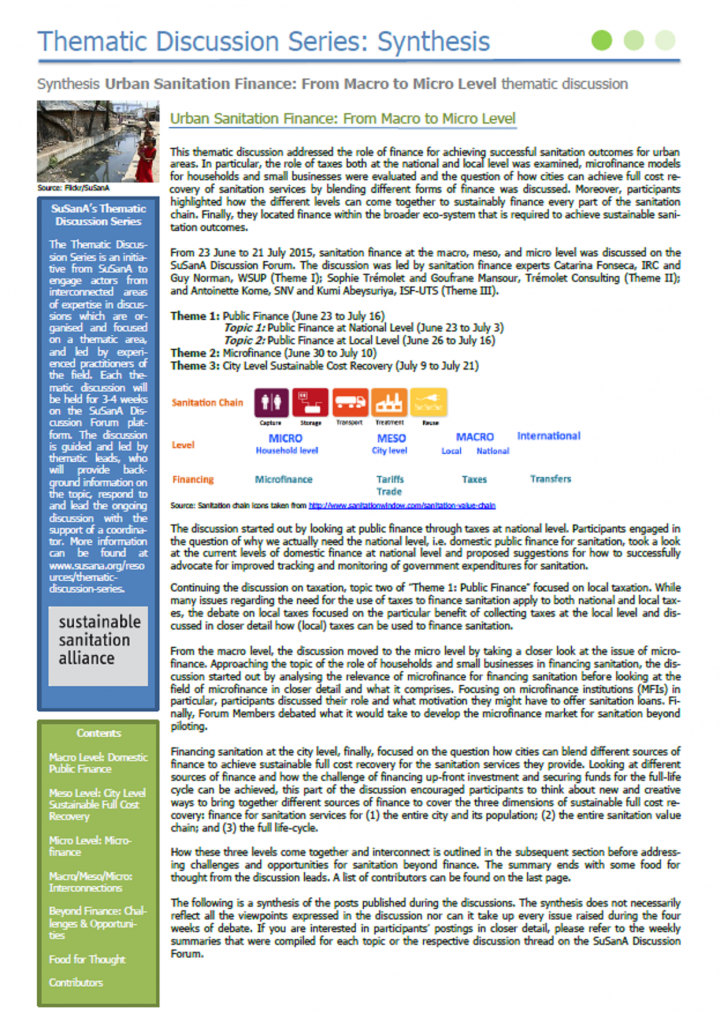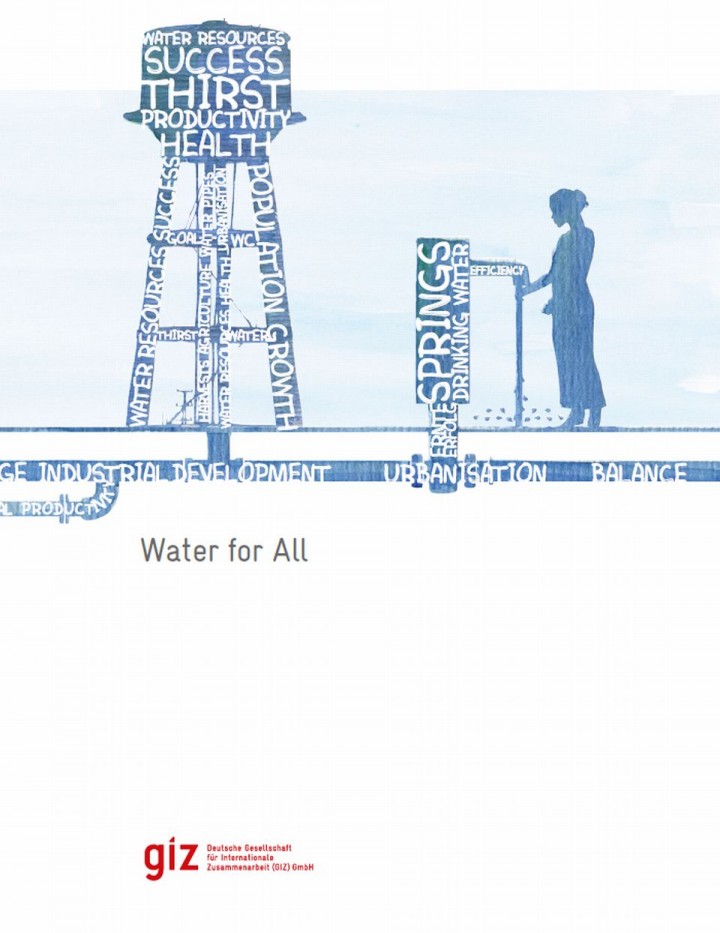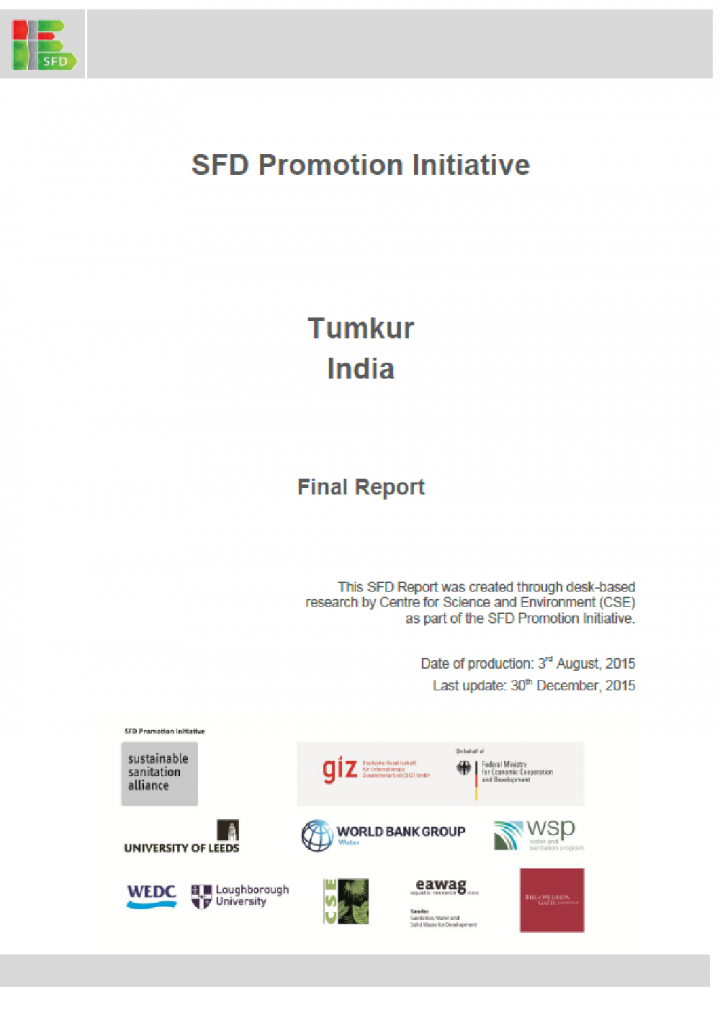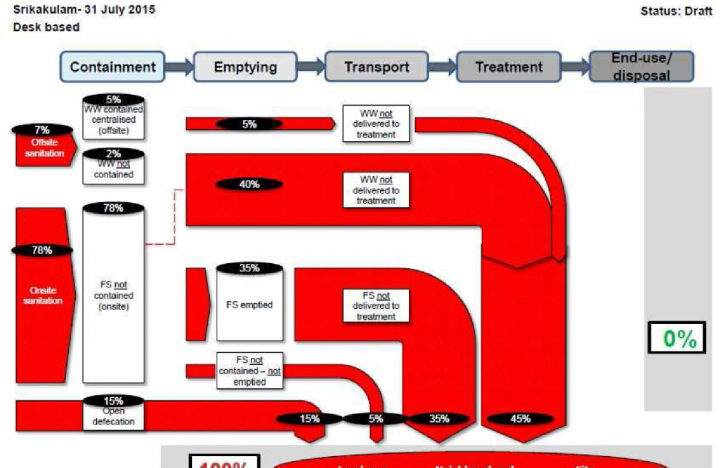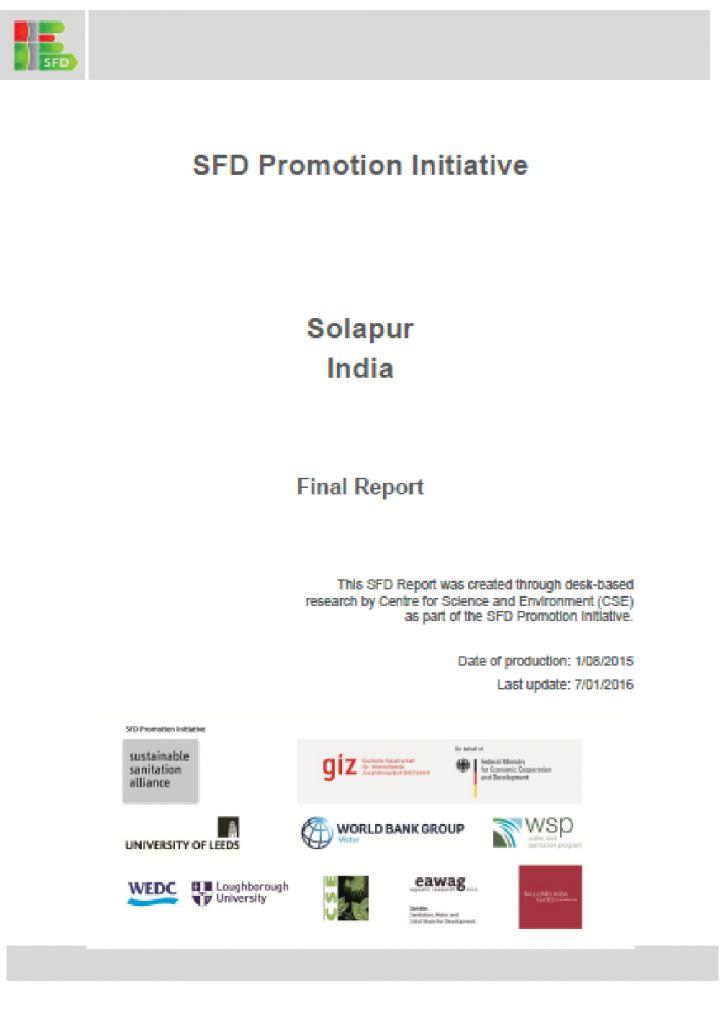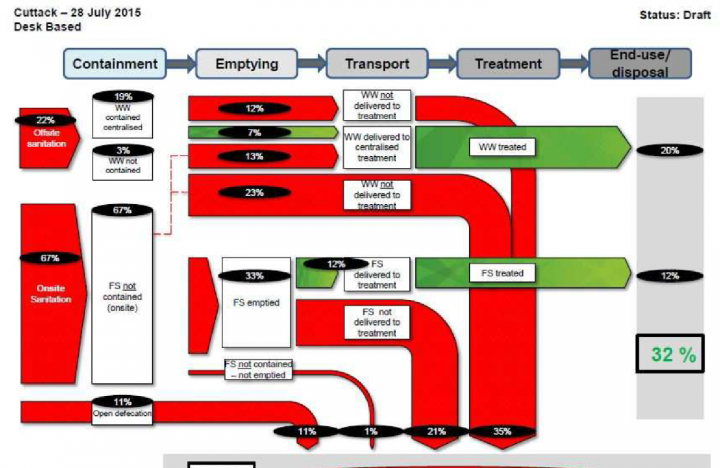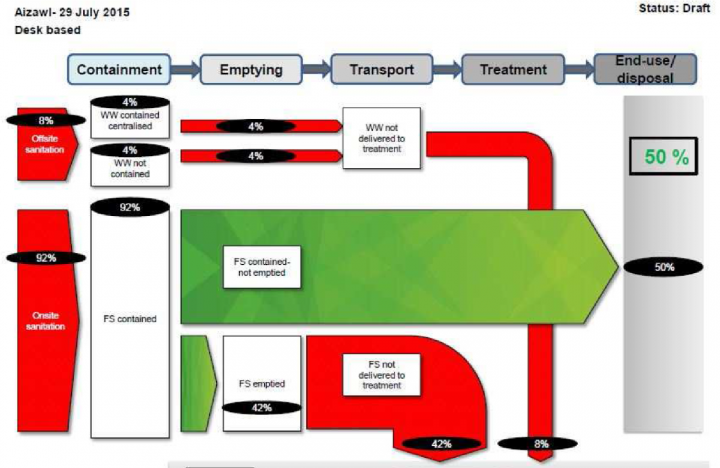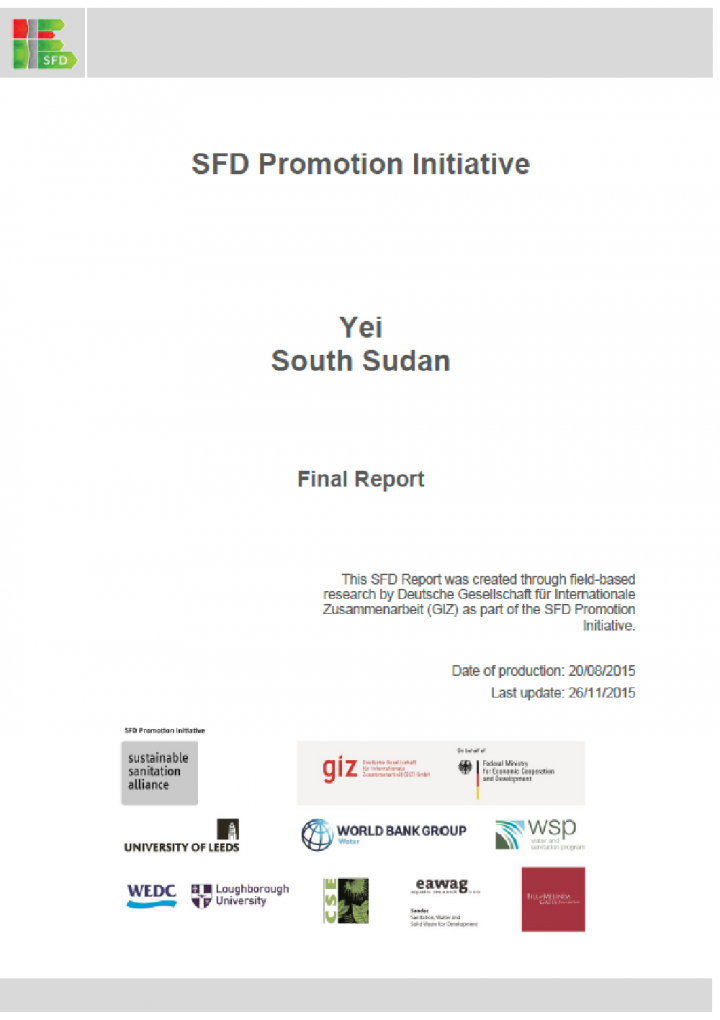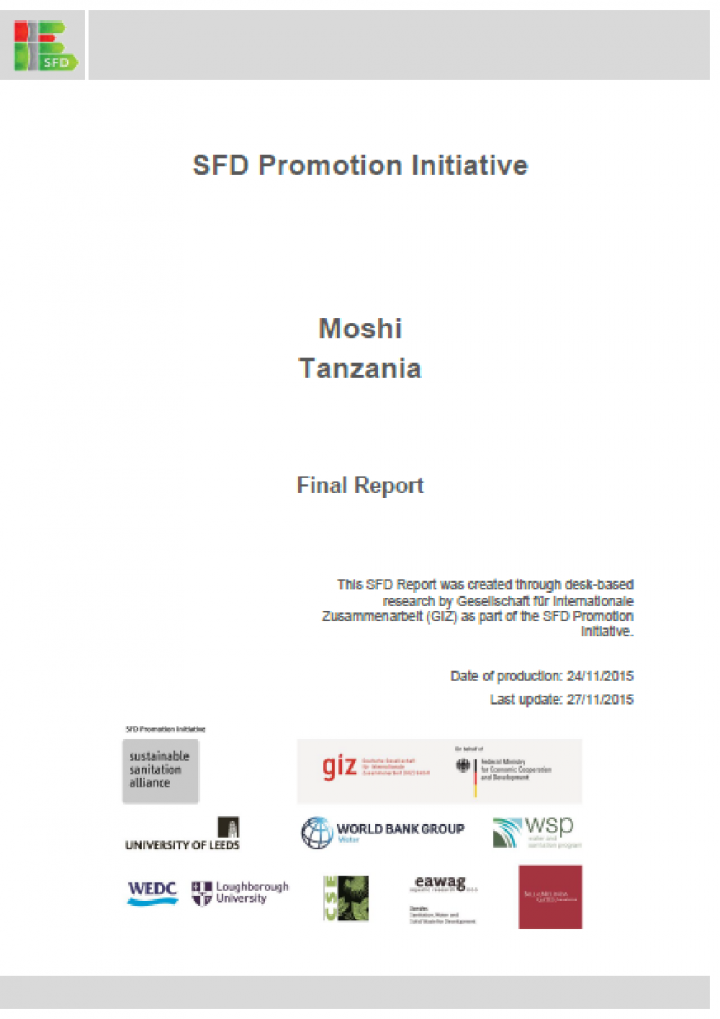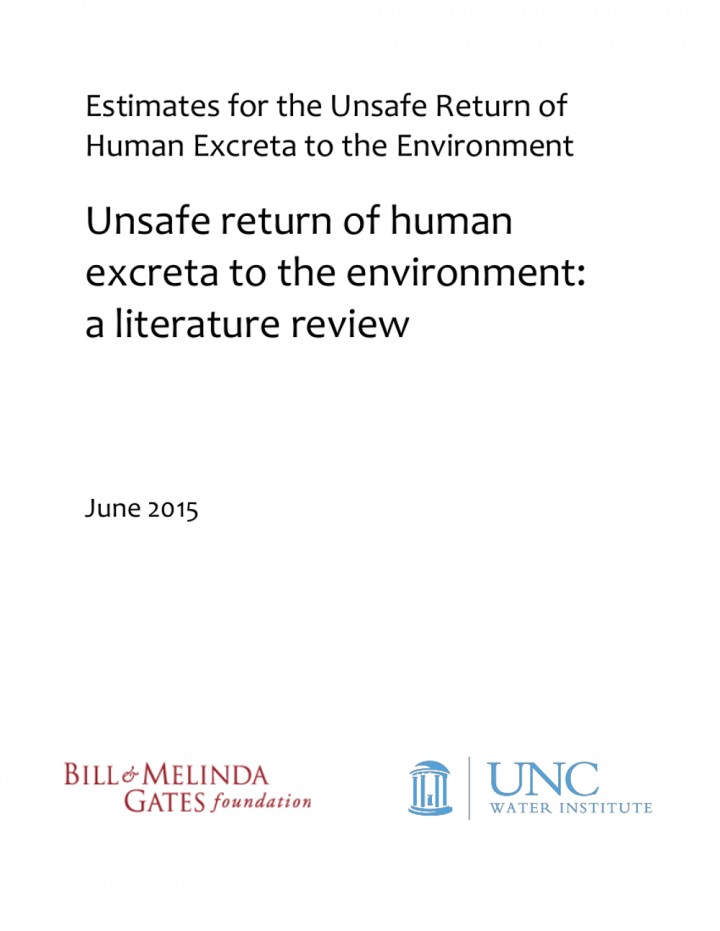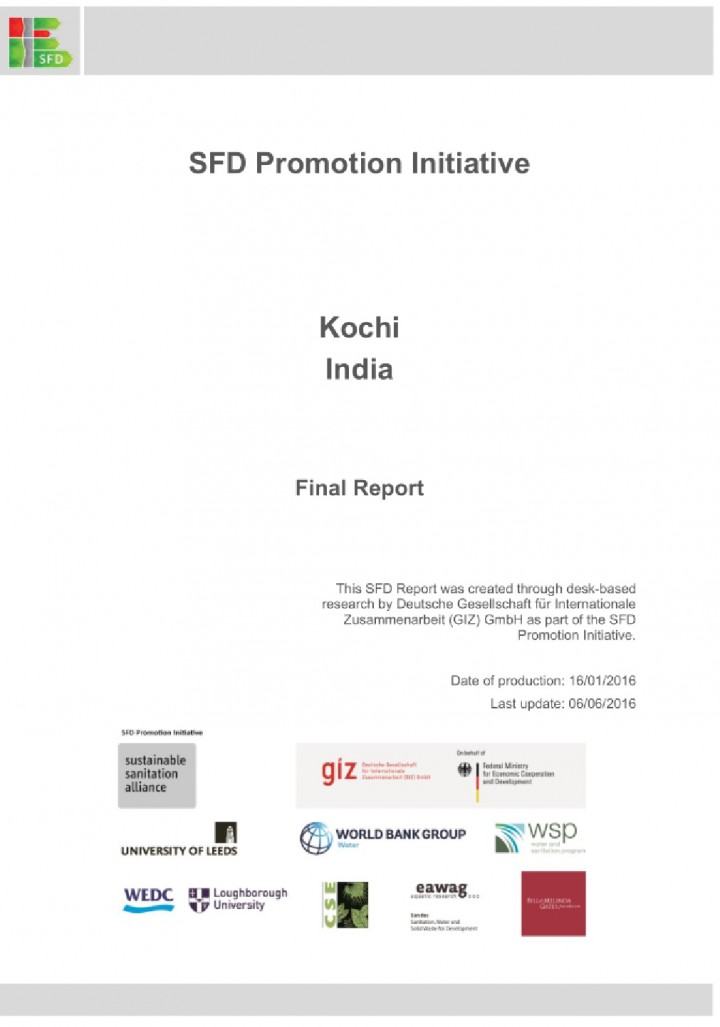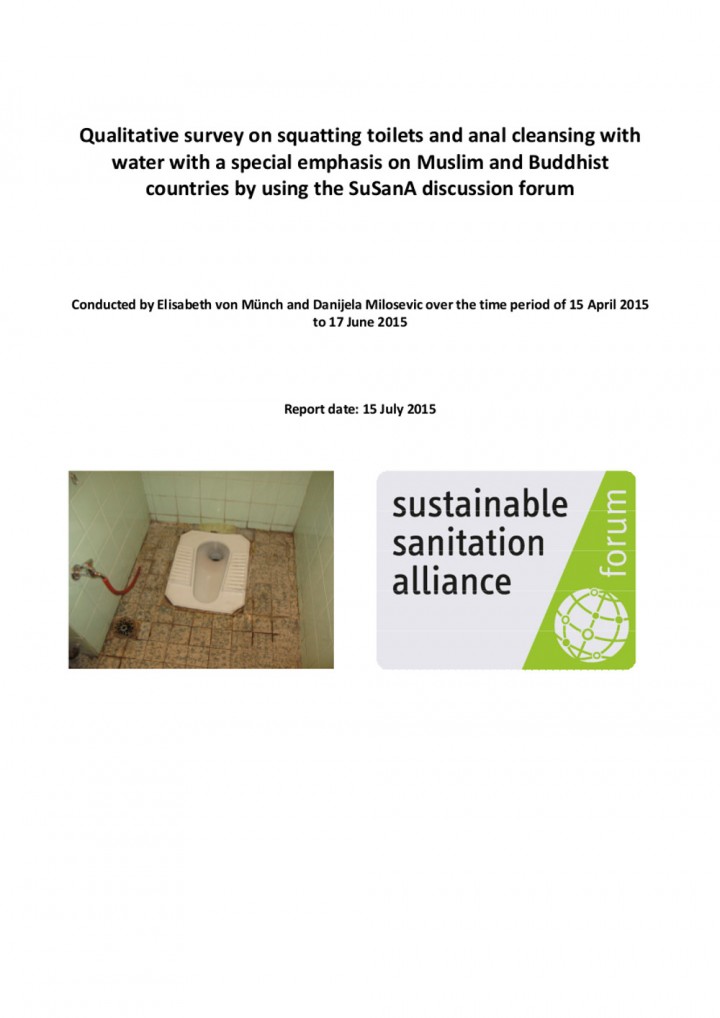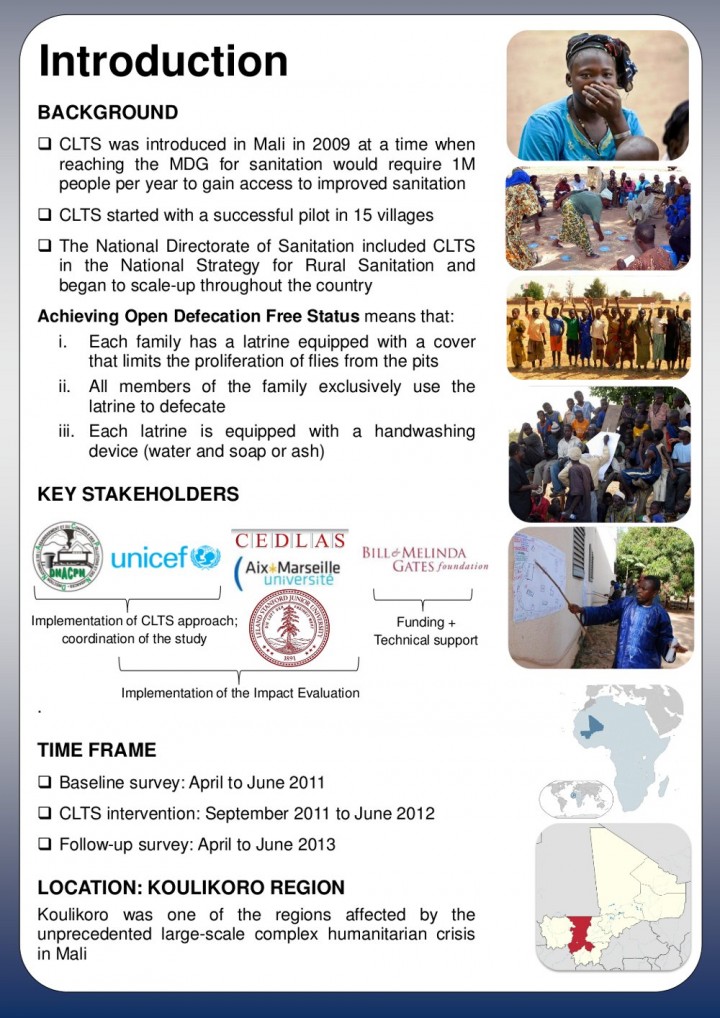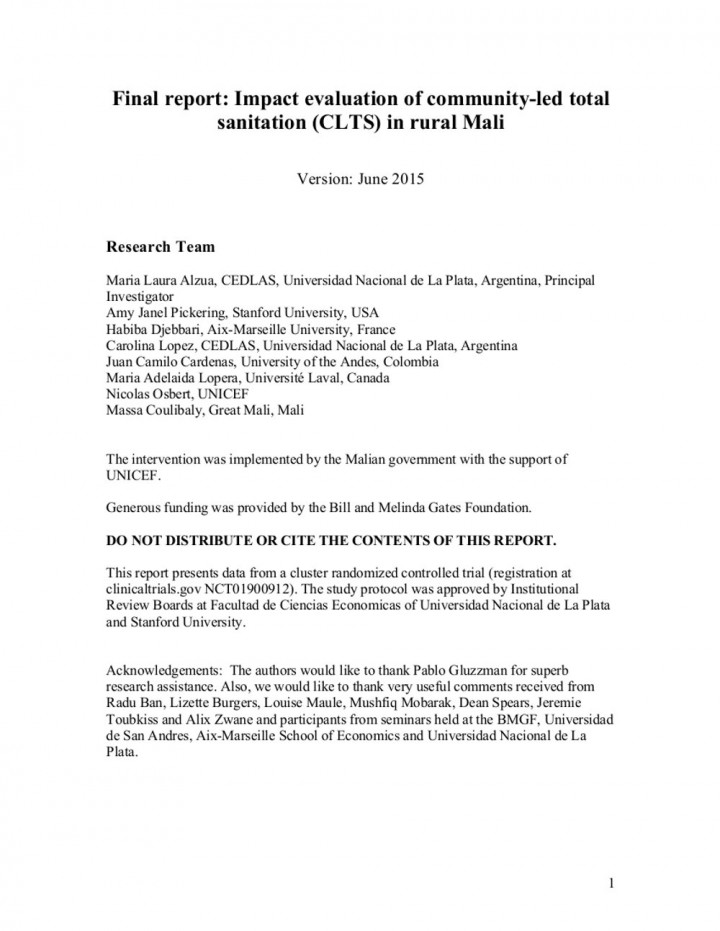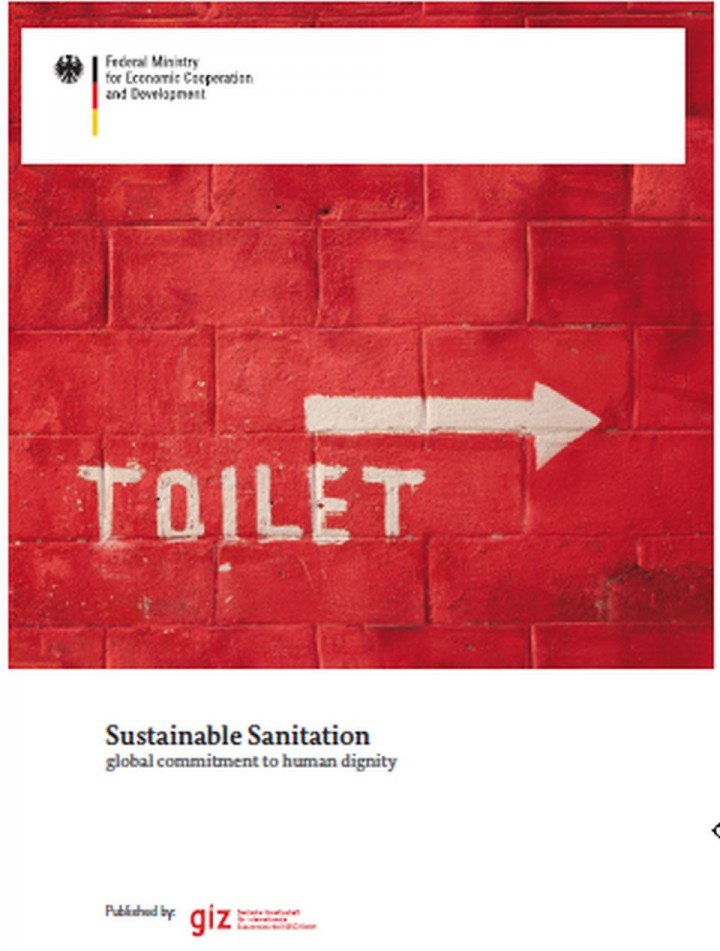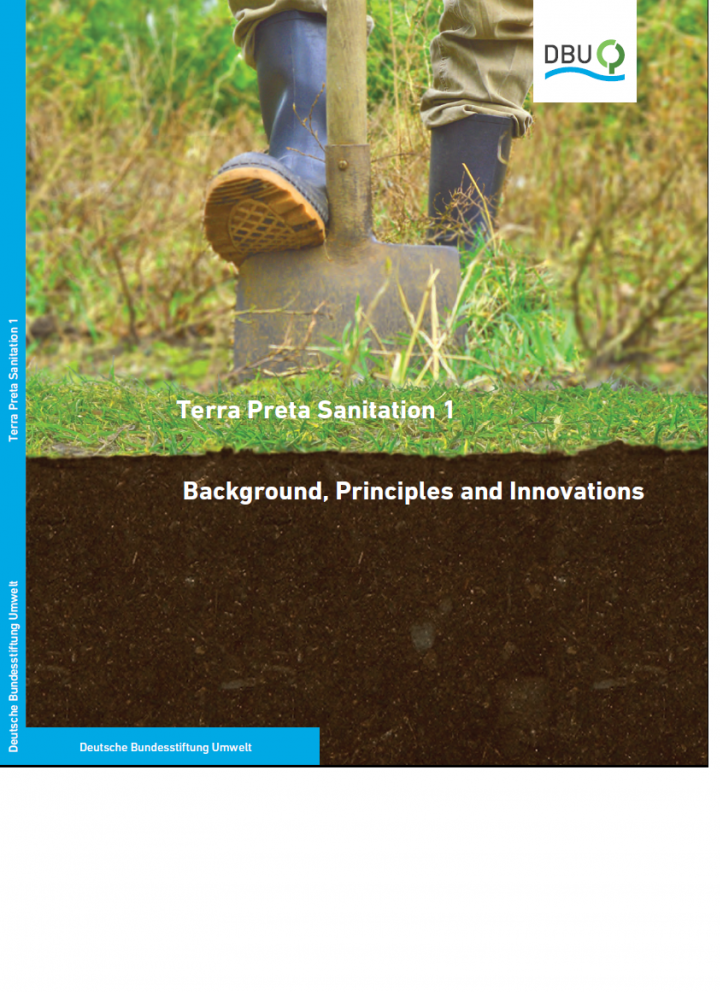Panesar, A. et al. (2015) Making WASH in Schools more Sustainable (Volume II)
This publication is the second volume of "Making WASH in Schools ore Sustainable". Similar to Volume I, it showcases various approaches, both practical and innovative, to provide sustainable WASH solutions in schools around the world. The stories are not limited to the construction of water and sanitation systems but also show how these systems are operated and maintained through active involvement of pupils, teachers, cleaning […]
Various authors (2015) 4th AfricaSan Conference: Making Sanitation for All a Reality in Africa Dakar, Senegal
The fourth African Conference on Sanitation and Hygiene (AfricaSan 4) was convened and organised by the Government of Senegal, supported by AMCOW (African Minister’s Council on Water) from 25 to 27 May 2015. The AfricaSan 4 was attended by more than 800 participants including various Ministers responsible for sanitation from across Africa. The “Ngor Declaration on Sanitation and Hygiene” is a result of the Conference which […]
BMGF (2015) Building demand for sanitation - a 2015 portfolio update and overview Water, sanitation, and hygiene strategy, June 2015
Rudolph, H. H., Beck, D., Panesar, A. (2015) Quantitatives und qualitatives Wirkungsmonitoring im WASH-Sektor (Quantitative and quality results monitoring in the WASH sector) Konzeptpapier (in German)
Das Konzeptpapier beschäftigt sich mit der zentralen Frage der Messung von kurz-, mittel- und langfristigen Wirkungen von entwicklungspolitischen Maßnahmen zur Verbesserung der Lebenssituation und Perspektive von Menschen. Es zeigt entwicklungspolitische und konzeptionelle Hintergründe und Trends auf, vertieft nationale und internationale Ansätze und Empfehlungen im Bereich Monitoring und Wirkungsmessung im WASH-Sektor, stellt einige zentrale Herausforderungen und Fragestellung heraus und fasst „Bausteine“ für ein anwendungsbezogenes Wirkungsmonitoring zusammen. Als […]
Dauenhauer, K. (2015) TDS Urban Sanitation Finance Synthesis
This thematic discussion addressed the role of finance for achieving successful sanitation outcomes for urban areas. In particular, the role of taxes both at the national and local level was examined, microfinance models for households and small businesses were evaluated and the question of how cities can achieve full cost re-covery of sanitation services by blending different forms of finance was discussed. Moreover, participants highlighted […]
GIZ (2015) Water for all
GIZ carries out water projects in around 50 different countries, acting at the municipal, national, regional, and global levels. GIZ teams often work on the ground with ministries, regulatory authorities, regional governments, water associations, and also directly with water utility companies. GIZ develops forward-looking concepts for the water sector in cooperation with UN organisations, the Federal Institute for Geosciences and Natural Resources (BGR), KfW Entwicklungsbank, […]
Rohilla, S.K., Luthra, B., Varma, R.S., Padhi, S.K. (2015) SFD Report - Tumkur, India SFD Promotion Initiative
Tumkur (also known as Tumakuru) is located along the Pune-Bangalore National Highway N°4. The sewerage network covers half of the population, but there is also a high dependence on septic tanks, without the correct design, and pits. Tumkur possesses a Sewage Treatment Plant but has no treatment facilities for septage. This SFD Report was created through desk-based research by Centre for Science and Environment (CSE) as […]
CSE (2015) SFD Executive Summary Srikakulam India Draft
Srikakulam is located in the state of Andhra Pradesh and is an important administrative and commercial center. The population of city is 133,911 persons. Lack of sewerage network, sewage treatment plant, malfunctioning septic tanks and pits as well as open defection are the causes of excreta being unsafely managed. Date of production: 31/07/2015 Last update: 25/08/2015
Rohilla, S.K., Luthra, B., Varma, R.S., Padhi, S.K. (2015) SFD Report - Solapur, India SFD Promotion Initiative
Solapur is located on the south-eastern border of Maharashtra State. The population of the city is 951,118 persons. One-fifth of city’s population depends on public toilets while septic tanks and pits are most common in Solapur’s households. There is a sewerage network but it covers less than half of the population. Date of production: 01/08/2015 Last update: 07/01/2016
CSE (2015) SFD Executive Summary Cuttack India Draft
Cuttack lies in the east coast plains of India; it is the capital and one of the oldest cities of Odisha. Population of the city reaches 606,007 persons, who are mainly dependent on malfunctioning septic tanks and pits. Only 32% of faecal sludge and wastewater is safely managed. Date of production: 28/07/2015 Last update: 25/08/2015
CSE (2015) SFD Executive Summary Aizawl India Draft
Aizawl is the capital of Mizoram State located in the east of the Himalayan region of India. The density of the city, 2,823 persons per sq. km, is higher compared to state average, 52 persons per sq. km. 92% of the city depend on onsite sanitation systems and 8% of the city on offsite systems. There is no wastewater treatment leading to unsafe management […]
Hassib, Y. (2015) SFD Report - Yei, South Sudan SFD Promotion Initiative
Providing water and sanitation to Yei population is one of the concerns of the government, considering that around 60% of the households use pit latrines with minimal stability, mud floor and low privacy (whose management is affecting groundwater quality).; less than 1% of population have a septic tank and emptying contamination facilities is practiced by only 7% of the households. This SFD Report was created through […]
Hassib, Y., Roeder, L. (2015) SFD Report - Moshi, Tanzania SFD Promotion Initiative
Moshi municipality is an administrative district in Kilimanjaro province whose population has growth from less than 10,000 to 185, 000 residents. The majority of households depend on on-site sanitation which is poorly documented, not regulated or monitored. In Moshi it was estimated that 36% of excreta is managed safely while 64% of the excreta ends up directly in the environment without adequate treatment. This Shit Flow […]
Various authors (2015) Proof of concept of estimates for the unsafe return of human excreta to the environment Various documents on results from research grant
Roeder, L. (2016) SFD Report - Kochi, India SFD Promotion Initiative
The city of Kochi (also known as 'Cochin') is the touristic and economic capital of the state of Kerala located in the south-west region of India. The municipal boundary of the Corporation Cochin (CoC) has a total population of over 600,000. In Kochi it was estimated that 20% of excreta is managed safely while 80% of the excreta ends up directly in the environment without […]
von Münch, E. Milosevic, D. (2015) Qualitative survey on squatting toilets and anal cleansing with water with a special emphasis on Muslim and Buddhist countries by using the SuSanA discussion forum
Only little information exists about the use of squat toilets in different regions of the world. This survey uses the experience of professionals and practitioners involved in different water and sanitation programs to collect more information about the use and prevalence of squatting toilets, with an emphasis on Muslim and Buddhist countries. The purpose of the survey was to get semi-quantitative data about the use of […]
Alzua, M. L. et al. (2015) Evaluating the Impact of Community Led Total Sanitation (CLTS) Programs in Mali
This library entry contains documents for a grant that Maria Laura Alzua is leading and which is funded by the Bill and Melinda Gates Foundation. Goal: to improve the evidence of the effectiveness of Community Led Total Sanitation Programs on health and behavioral outcomes Purpose (copied from Trial description: https://clinicaltrials.gov/ct2/show/NCT01900912): Behavioral change is a key ingredient for successful adoption of better sanitation practices in rural Africa. Sanitation programs […]
Alzua, M. L. et al. (2015) Impact evaluation of community-led total sanitation (CLTS) in rural Mali - Final report
This report covers the main findings of the impact evaluation conducted of a communityled total sanitation (CLTS) campaign implemented by the government of Mali (Direction Nationale de l’Assainissement) with the support of UNICEF. We conducted a clusterrandomized controlled trial among 121 villages randomly selected from the district of Koulikoro in order to evaluate health and non-health program impacts. Baseline data was collected during April-June 2011, […]
Kanathigoda, A. K. (eds.) (2015) Sustainable Sanitation - global commitment to human dignity Factsheet compilation
This is a compilation of factsheets regarding sanitation activities of GIZ and partners in eight countries in Sub-Saharan Africa. The countries are Benin, Burkina Faso, Burundi, Kenya, South Sudan, Tanzania, Uganda and Zambia. The country factsheets summarise on two pages each the sanitation challenges, GIZ's approach, program activities and outcomes.
Bettendorf, T. et al. (2015) Terra Preta Sanitation 1 Background, Principles and Innovations
Terra Preta composting is an age old technology from Amazon forests which leads to a special type of soil with high nutrient storage chapacity.
